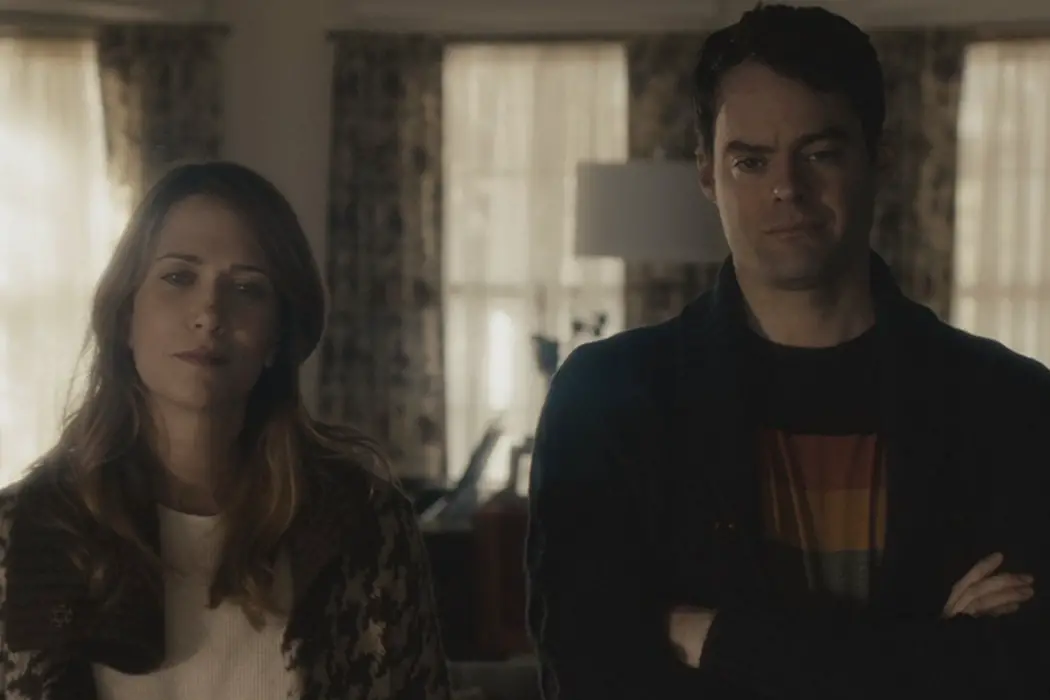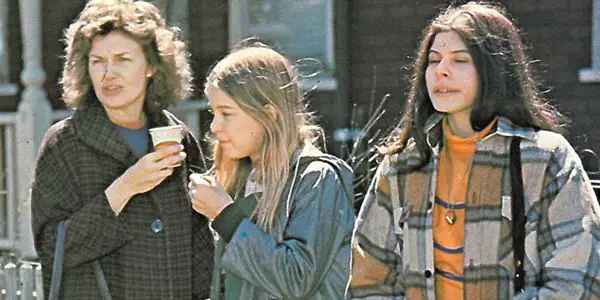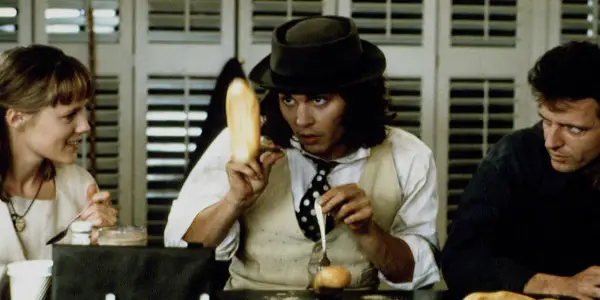Mental Health And The Movies: An Examination

Michelle Sabato is an actor and writer from Cleveland, Ohio.…
Art, in any form, can reveal elements of real life that we sometimes choose to ignore. Maybe the topics that we choose not to address scare us or make us uncomfortable; but it’s only in acknowledging and addressing such issues that we will be able to learn and grow. Mental health is not the easiest topic to discuss. There is still a sizable stigma attached to it, sadly. It seems like we, as a society, only want to talk about mental health when it is in the aftermath of a national tragedy. We talk about “what went wrong” or “how could this be prevented”, but we seldom want to address the everyday struggles that someone with a mental illness may face.
I was always struck by watching shows like Inside the Actor’s Studio, when actors would reveal their bouts of depression and anxiety. And reading up on different writers, directors and painters, there is a theme of mental health issues when it comes to being a creative person. It’s strange, but it’s almost the curse that comes with the blessing of the talent. I have written and directed short films that deal with mental health issues because I am someone who has lived with anxiety and depression. And there should be no shame in admitting that.
Because this is part of my life, I always try to find a representation of me in films. I want to know that I’m not alone and I have always looked to films to comfort me. In my personal opinion, I think film can be doing more to shed light on very common health issues. Most people will deal with a mental health issues in their life, whether it be for a short period of time or a lifetime.
In no way do I claim to be a mental health expert, I only know my own story. But here are the few films that have resonated with me on my mental health journey.
The Effect of Gamma Rays on Man in the Moon Marigolds (1972)
The first film that I chose holds a special place in my heart as it is the first play I ever directed. The Effect of Gamma Rays on Man in the Moon Marigolds is a film adapted from a play by Paul Zindel. The film, starring Joanne Woodward and directed by her husband, Paul Newman, follows the life of Beatrice Hunsdorfer and her two daughters, Ruth and Matilda. The story is focused on Matilda and her science project where she tests radium on marigolds. All the while she is fighting the elements of a dysfunctional family and the clashing between her mother and her sister.

Mental health is not directly mentioned, but it is certainly implied. Ruth, who is going through a rebellious teenage phase, suffers fits of epilepsy. And it is noted that she dealt with psychiatric treatment. Beatrice is constantly striving for a better life, but takes her frustrations out on her daughters in an abusive manner. Matilda’s experiment essentially mirrors her home life – the radium is the toxic behavior of her mother. And as the radium causes the marigolds to wither, the toxic behavior of Beatrice wears away at her daughters.
The unfit family life shows the precursors of future trauma and expresses how stress can wreak havoc on someone’s mental well being.
Benny & Joon (1993)
If you’re like me, you might find yourself randomly bursting out into song with The Proclaimers “I’m Gonna Be (500 Miles)”. The song was featured in 1993 romantic comedy Benny & Joon starring Johnny Depp and Mary Stuart Masterson. The film follows the life of Joon and her brother Benny, played by Aidan Quinn. The siblings live together after the death of their parents and Benny is Joon’s caregiver. Joon is a talented artist, but suffers from schizophrenia. When Benny feels like she is too much to handle, he attempts to hire somebody to help, but is unsuccessful because Joon is too much to handle. And that’s when Sam, played by Depp, enters into the equation.

Often mimicking the likes of Buster Keaton, Sam is an eccentric individual whom Joon is instantly drawn to. They fall for each other, but not without having to withstand some battles first. Because of Sam’s own issues, Benny doubts he will be able to care for Joon. Benny objects to their love affair, but ultimately concedes when he seems the positive impression Sam is leaving on Joon.
The film gives a first hand look at the family dynamics that are at play when mental illness is a factor. There are highs and lows when it comes to being a caregiver. And the film also highlights the difficulties of romantic relationships when the participants suffer from a mental illness. But, it ultimately can be done; as the films goes to show Sam and Joon living happily together.
Silver Linings Playbook (2012)
It’s definitely hard to be positive when suffering from any illness, but that is exactly what Pat, played by Bradley Cooper, intends to do in the film Silver Linings Playbook. After serving time at a psychiatric hospital, Pat is discharged and determined to get his life on track. He refuses to take medication, but agrees to mandatory therapy with the intention of getting his ex wife back. With the suggestion of his friend, Ronnie, he starts to get back out into the world and meet new people. One of those people is his sister in law, Tiffany, played by Jennifer Lawrence. And Tiffany has a whole story of her own.

Recently widowed, Tiffany is struggling to get by. She connects with Pat over their previous medication use and their penchant for saying inappropriate things. She asks Pat to be her partner in a dance competition and they begin practicing and bonding over their afflictions.
The film can be described as a romance, drama and comedy and shows the layers that someone is capable of having who lives with a mental condition. Many people who suffer feel incredibly isolated and alone, but this films shows that every Pat can find their Tiffany.
The Skeleton Twins (2014)
Sadly, suffering from a mental illness can lead to suicide and suicide attempts. The Skeleton Twins opens on estranged twins, Milo, played by Bill Hader and Maggie, played by Kristin Wiig, attempting suicide on the same day. Maggie goes to Los Angeles, where Milo has been living and convinces him to come back with her to New York. In New York, Milo meets Maggie’s husband, Lance, played by Luke Wilson and tries to acclimate himself to his new living arrangements.

While the twins are together again, it is revealed the Milo has suffered for many years because he was molested by his teacher in high school. Maggie also divulges that she has been sleeping with many different men and has been taking birth control pills, even though her husband thinks they have been trying to have a baby. Both of the twins suffer from torment of their past and grieve over the death of their father. After Milo reveals to Lance that Maggie has been on the pill, Maggie again tries to end her life, but Milo saves her.
While there is not a clear diagnosis for either of the twins, it is obvious that both suffer from differing forms of depression or PTSD. The film is a great conversation piece of how death and trauma go on to affect people throughout their lives. It also shows how suicide is not some “easy way out”, as we see the torment that both characters had to endure up until their attempts.
Positive Depictions
All of the films I chose for this piece ultimately frame their main characters in a positive light. Yes, the struggles that they face are real and heart wrenching, but all of the characters are able to persevere and grow. Mental illness, in my opinion, is not discussed enough in a positive way. No, it’s not great to have to suffer from an affliction, but that affliction does not equal the person’s character.
You also see an element of comedy in a lot of these films. People with mental illness are not these sad caricatures that society paints them to be. They are regular people who laugh, have love lives and career aspirations. It is important to note that a disease or disorder does not make someone any less human. And it is important that all of the characters in these films were layered individuals who were able to function outside of their diagnoses.
Mental Health In Movies: Conclusion
With the push for Hollywood to be more inclusive, and rightfully so, I stand firm in hoping that mental illness with be a topic that is covered more freely and broadly. With statistics showing people living with depression and anxiety on the rise, it is important that film be a true representation of the current culture. Without fear or stigma, people living with mental illness deserve to be represented in their varying layers.
Do you agree that mental illness should be a topic that is more freely discussed? If not mental illness, what do you feel is another under represented group that deserves a spotlight?
Does content like this matter to you?
Become a Member and support film journalism. Unlock access to all of Film Inquiry`s great articles. Join a community of like-minded readers who are passionate about cinema - get access to our private members Network, give back to independent filmmakers, and more.
Michelle Sabato is an actor and writer from Cleveland, Ohio. By the age of 2 Michelle had memorized all the words to The Wizard of Oz. So, yes, she can carry a conversation with just using movie quotes.












